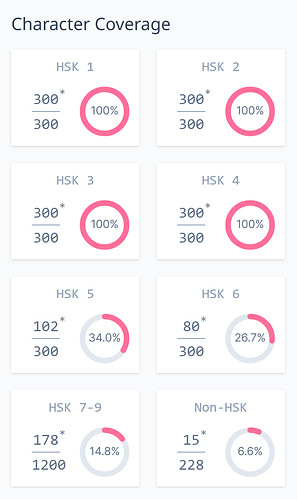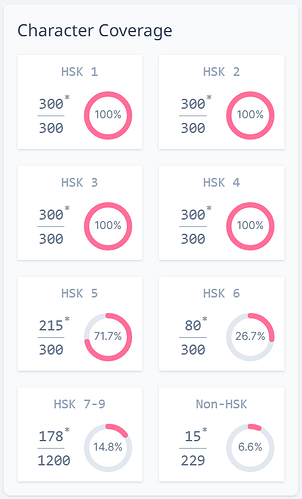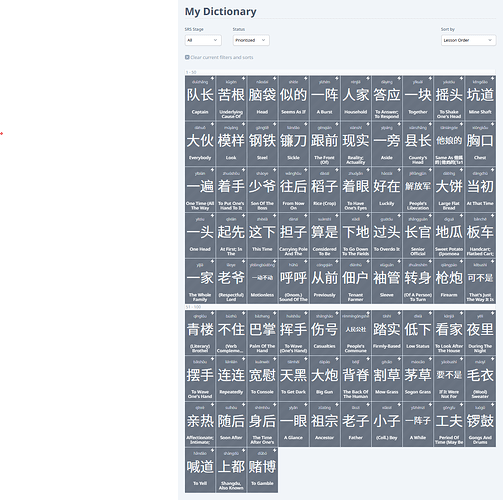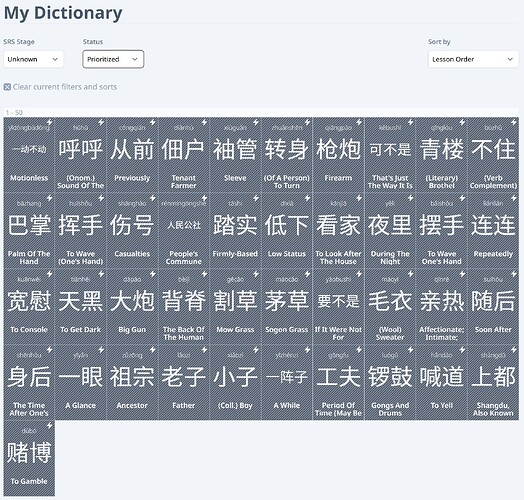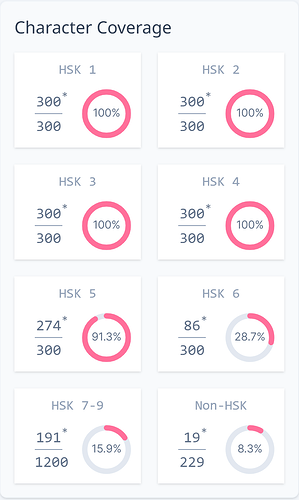As of today (April 26, 2025):
new breakdown format for myself
- 866 skipped
- 47 skipped, learned
- 829 skipped, unlearned
- 951 learned
- 904 learned, unskipped
- 47 learned, skipped
total: 1,770 characters ([learned] union [skipped])
Compared to 1 month ago (March 25) below. I’ve learned 252 characters!
- 692 learned (unskipped)
- 826 skipped
total: 1518 (that I’ve encountered in HanziHero)
And I’m making solid progress on the HSK5 set. On April 1, I was at 102/300 characters for HSK5.
Apps
Gonna post this under Chinese Language, too! I recently found an app called Falou for practicing speaking. My problem is that I’ve become SO shy since 2020 whereas before I was shameless (in a good way) about practicing speaking with natives.
Anyway, the app seems interesting so far. Granted, you’re kind of working through scripts, but sometimes it’s better to have the oral practice of speaking aloud, piecing the sounds together, and maybe learning some useful phrases along the way.
Other people’s reviews of the app say the phrases are pretty decent for Chinese, but we’ll see what my bf has to say lol.
My Dictionary
I have once again cleared my dictionary queue. Time to start reading 活着!!
HSK
The HSK dates for June and July are unfortunately at times that I have plans with other people lol. July is a maybe, but I guess I could just plan for the HSK5 for August. That gives me roughly 4 months to get up to speed and do a few practice tests.
For anyone who has taken the SAT (an exam whose score is part of college applications) and for those who’ve taken the HSK, I wonder if HSK will be the same vibe where the first time you take it, you don’t score well, but the second time you take it, your score improves significantly only because you’re used to the environment.
Why practicing with my partner feels impossible
For those of you who speak a foreign (subjective) language with your parents (compared to speaking with your friends in your local language), do you get that feeling of… when your parents try to speak to you in the local language, that it just feels wrong?
For example, I grew up speaking Serbian with my parents. ONLY Serbian. To the point that, whenever we have guests over, we all speak with the guests in English, then with each other in Serbian. Some people MIGHT think it’s rude, but for me, once I’ve established a language with someone, it’s hard to switch languages. And my boyfriend feels the same lol. He’s from China, and he says that speaking with me in Chinese feels like if he were suddenly speaking in English with his mom.
I had two friends in high school who spoke Spanish. One was from Spain, and from the get-go, we only spoke in English. Another friend was an exchange student from Mexico. With her, I only spoke in Spanish. When the three of us would hang out together, they’d talk with each other in Spanish, I’d talk with the first girl in English and the second girl in Spanish lol. The first girl would ask me why I don’t speak in Spanish with her, but it’s just that feeling of, we already established English as our language lmao.
